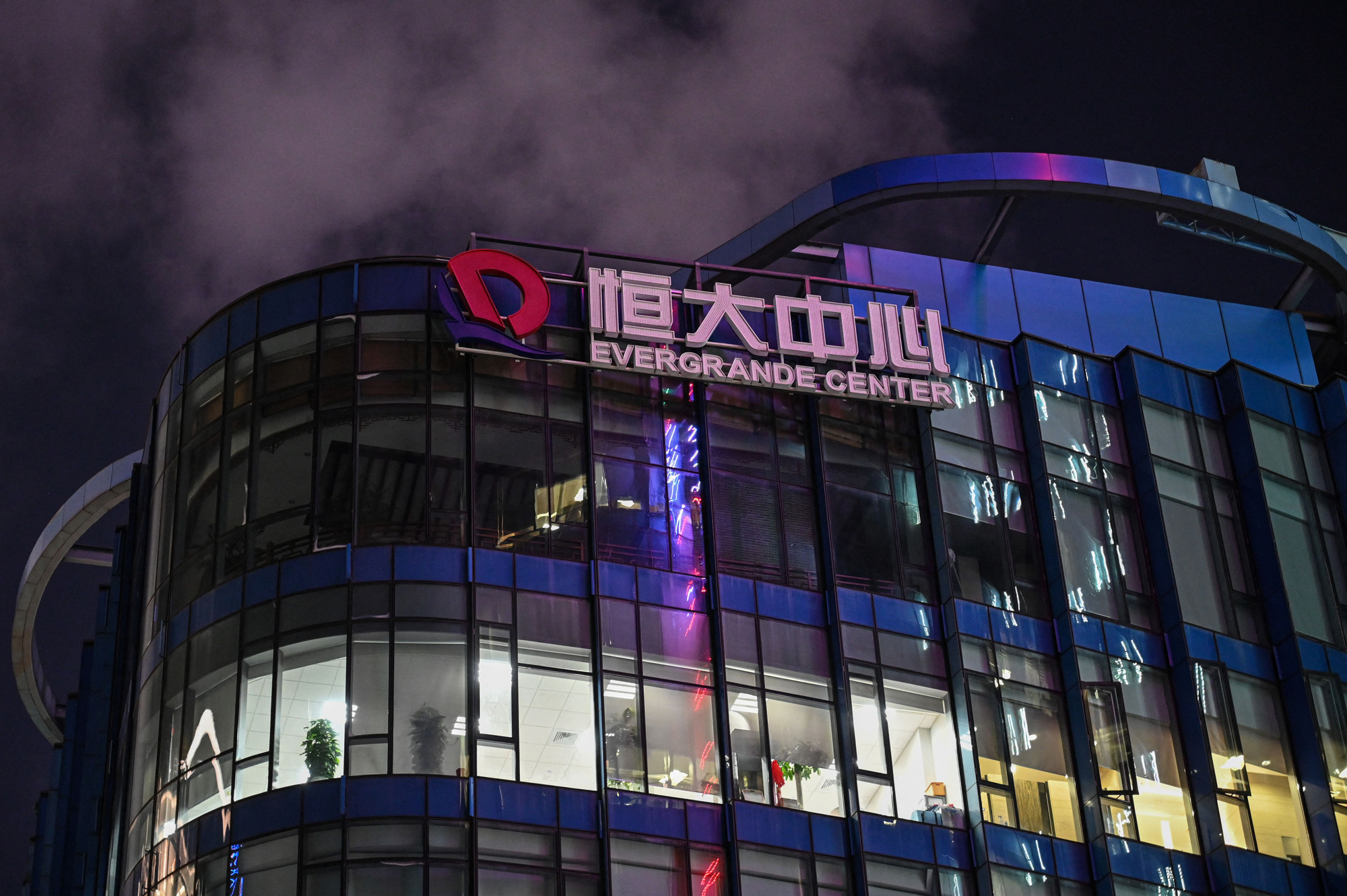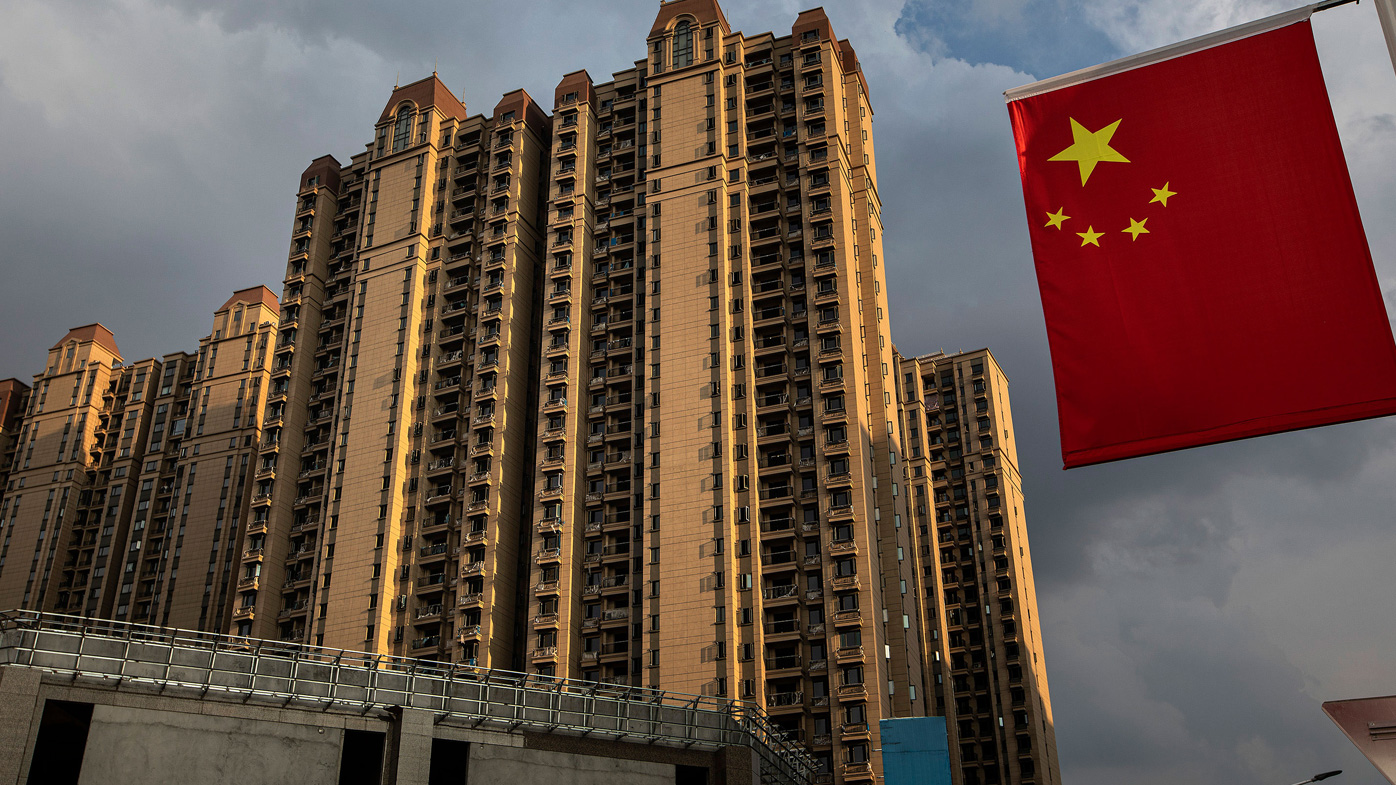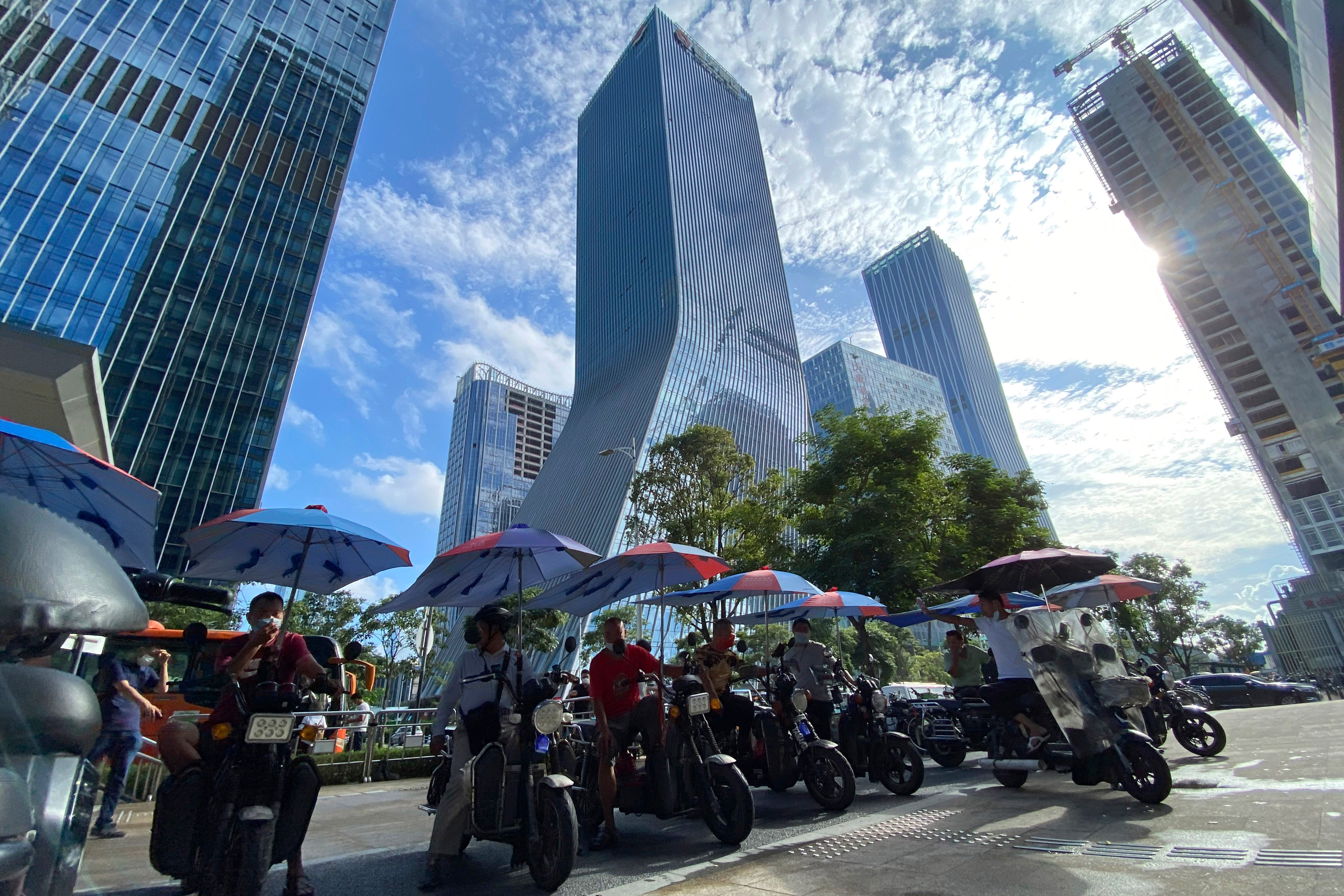A fire-sale deal that would have eased a punishing cash crunch at Chinese real estate giant Evergrande has collapsed, pushing the troubled company closer to a potential collapse.
Evergrande announced on Wednesday local time that it had terminated an agreement to sell a controlling stake in its property management unit to rival Chinese developer, Hopson, for about US$2.6 billion ($3.48 billion).
The companies traded blame for the collapse of the deal, with Evergrande claiming in a stock exchange filing that "the purchaser had not met the prerequisite to make a general offer for shares in Evergrande Property Services."
LIVE UPDATES: Treasurer urges more freedoms after Melbourne exits lockdown

Hopson said in a statement that it was ready to complete the deal, but "other parties" had attempted to change the terms of the agreement.
Shares of both companies, which had been suspended since the potential deal was announced, resumed trade Thursday in Hong Kong. Evergrande plummeted 12.5 per cent, while Hopson surged 7.6 per cent.
A critical weekend
The deal's collapse is bad news for Evergrande, which is just days away from a potential formal default.
The company faces a deadline this weekend when a 30-day grace period expires on interest payments owed to investors.
Evergrande appeared to miss US$83.5 million ($111.86 million) in payments on a dollar bond on September 23. The deadline to pay is Saturday, according to Jeffrey Halley, senior market analyst of Asia Pacific at Oanda.
READ MORE: Qantas to restart international flights earlier than expected

Mr Halley said that a failure to make the payments "could trigger a cross-default on other debt instruments," which may allow some of Evergrande's other creditors to demand their money back.
"They'll run out of wiggle room here," he said.
A formal default could send shockwaves through global stock markets on Monday, said the analyst. It could also prompt Chinese regulators to take action.
"The Chinese government has been deafening in its silence on this issue," Mr Halley said.
"This may force the hand of the central government to finally act more directly."

READ MORE: $60 million Powerball ticket won by mystery Melbourne person
Authorities have tried to calm the situation as investors fret over the risks of contagion. Last week, China's central bank said that Evergrande had mismanaged its business, but risks to the financial system were "controllable."
That was echoed by Chinese Vice Premier Liu He at a financial forum in Beijing on Wednesday.
In a speech reported by Chinese state-run news agency Xinhua, Mr Liu acknowledged what he called "individual problems" in the real estate market.
But he stressed that risks were generally under control, the capital needs of property developers were being met, and the overall trend of "healthy development" of China's real estate market would not change, according to Xinhua.
Struggling to recover
In recent weeks, Evergrande has been trying to resolve its cash flow issues by attempting to sell some of its assets, such as partial stakes in its electric vehicle and property services businesses, as well as an office tower in Hong Kong.
But the company hasn't had much luck in its search for buyers.
In another stock exchange filing Wednesday, the group said that there had been "no material progress" on the sales of its other assets, apart from a previously disclosed stake sale in a local lender.
The group has also warned of further hits to its business over the last few months.
READ MORE: Melbourne CBD erupts with noise at midnight as lockdown lifts
From September 1 to October 20, contract sales of properties were just 3.65 billion yuan ($764.8 million), it said Wednesday. That represents an approximate 97 per cent drop compared to the same period last year, according to Mr Halley.
Evergrande isn't the only player struggling. Recently, a slew of other developers have disclosed their own cash flow issues, asking lenders for more time to repay them or warning of potential defaults.
Beijing-based Modern Land is one of those developers. Last week, the company asked investors for more time to repay a US$250 million ($334.9 million) bond due on October 25, highlighting its own liquidity problems.
Its shares were suspended from trade in Hong Kong on Thursday as it disclosed an upcoming announcement, without giving further details.
